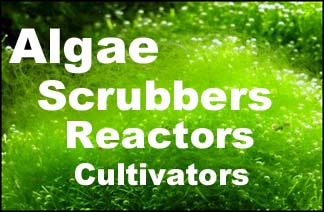Sorry to jump into this discussion, even though I'm fairly new to scrubbers.
I do have 7 years of experience with the Zeovit method though. And the theory that P gets stored in the rocks has been an accepted theory in the Zeovit world for many years now. Typically, starting Zeovit in a tank rich in N and P will show the same behaviour. Both N and P go down fast. But P will hit a point in which it "hangs" there for a while because it leaks from the rocks and the sand. It's easy to convince yourself. Just put a little piece of rock from your tank in some rodi water for a week and then measure the P. Often, the solution here is either patience, or dosing CalciumNitrate or PotassiumNitrate to get the balance back. I prefer the first if the balance isn't off by to much.
People are probably going to ask why I'm interested in scrubbing if I'm running Zeovit, so I'll beat them to it: Experimenting. I wanted to see if it will grow algae that outcompete, and get rid of, the brown algae that kept growing on my sandbed.
Only four weeks after installing the little HOG.5, I started seeing all kinds of benefits that I hadn't expected. I started seeing pods again. (They're an endangered species in most zeo-tanks.) I started seeing little swimming and crawling critters that scurry away when I turn on the lights. I've seen a bacteria-bloom for the first time, so my bacterial processes have accelerated. (I had to lower my C dosing (Zeostart) to prevent these blooms.) What I was hoping for: My brown sand has turned white. And the colours of my corals are popping. (Or were those pesky brown algae on my sand also covering my corals?)
So currently my scrubber is making my zeotank work again. I've ordered a second HOG.5, just to see what it does.



 Reply With Quote
Reply With Quote
